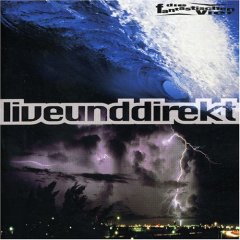
Immanuel Hermann Fichte was a German philosopher and son of Johann Gottlieb Fichte. In his philosophy, he was a theist and strongly opposed to the Hegelian School.

Friedrich Wilhelm Joseph Schelling, later von Schelling, was a German philosopher. Standard histories of philosophy make him the midpoint in the development of German idealism, situating him between Johann Gottlieb Fichte, his mentor in his early years, and Georg Wilhelm Friedrich Hegel, his one-time university roommate, early friend, and later rival. Interpreting Schelling's philosophy is regarded as difficult because of its evolving nature.

Thomas Metzinger is a German philosopher and Professor Emeritus of theoretical philosophy at the Johannes Gutenberg University of Mainz. As of 2011, he is an Adjunct Fellow at the Frankfurt Institute for Advanced Studies, a co-founder of the German Effective Altruism Foundation, president of the Barbara Wengeler Foundation, and on the advisory board of the Giordano Bruno Foundation and the MIND Foundation. From 2008 to 2009, he served as a Fellow at the Berlin Institute for Advanced Study; from 2014 to 2019, he was a Fellow at the Gutenberg Research College; from 2019 to 2022, he was awarded a Senior-Forschungsprofessur by the Ministry of Science, Education and Culture. From 2018 to 2020, Metzinger worked as a member of the European Commission’s High-Level Expert Group on Artificial Intelligence. In 2022 he was elected into the German National Academy of Sciences Leopoldina.

Ernst Alfred Cassirer was a German philosopher. Trained within the Neo-Kantian Marburg School, he initially followed his mentor Hermann Cohen in attempting to supply an idealistic philosophy of science.

Paul Jakob Deussen was a German Indologist and professor of philosophy at University of Kiel. Strongly influenced by Arthur Schopenhauer, Deussen was a friend of Friedrich Nietzsche and Swami Vivekananda. In 1911, he founded the Schopenhauer Society (Schopenhauer-Gesellschaft). Professor Deussen was the first editor, in 1912, of the scholarly journal Schopenhauer Yearbook (Schopenhauer-Jahrbuch).
Hugo Albert Emil Hermann Dingler was a German scientist and philosopher.

Gustav Landauer was one of the leading theorists on anarchism in Germany at the end of the 19th and the beginning of the 20th century. He was an advocate of social anarchism. As an avowed pacifist, Landauer advocated the principle of "non-violent non-cooperation" in the tradition of Étienne de La Boétie and Leo Tolstoy.

Hermann Ulrici was a German philosopher. He was co-editor of the philosophical journal Zeitschrift für Philosophie und philosophische Kritik. He also wrote under the pseudonym of Ulrich Reimann.
Georg Misch was a German philosopher.

Albert Stöckl was a German neo-scholastic philosopher and theologian.

Otfried Höffe is a German philosopher and professor.
Heinz Heimsoeth was a German historian of philosophy.
Heidegger Gesamtausgabe is the title of the collected writings of German philosopher Martin Heidegger (1889-1976), published by Vittorio Klostermann.
Atticus was an ancient Platonic philosopher who lived in the second century of the Christian era, under the emperor Marcus Aurelius. His lifetime fell into the epoch of Middle Platonism, of which he was one of the most notable representatives.

Live und direkt is a double album by German hip hop group Die Fantastischen Vier, consisting of a live part and a studio part. The live part was recorded at three concerts during the Lauschgift-tour with their then backing band disJam, at Huxleys Neue Welt in Berlin on 19 February 1996; at the Turbinenhalle in Oberhausen on 22 February 1996 and during the Bear Music Days in Die Fantastischen Vier's hometown Stuttgart, the Theaterhaus Wangen on 1 June 1996.
Lutz Wingert is a German philosopher who is sometimes identified as one of the "Third Generation" of the Frankfurt School of philosophy. He is a professor of philosophy focusing on practical philosophy at the Swiss Federal Institute of Technology Zurich and a member of the Zentrum Geschichte des Wissens. He is a former student of, and a co-author with, Jürgen Habermas, a founding member of the Frankfurt School. Wingert is a former chair of practical philosophy at the University of Dortmund. Along with Wilfried Hinsch, he edits the Ideen & Argumente series.
Manfred Frank is a German philosopher, emeritus professor of philosophy at the University of Tübingen. His work focuses on German idealism, romanticism, and the concepts of subjectivity and self-consciousness. His 950-page study of German romanticism, Unendliche Annäherung, has been described as "the most comprehensive and thoroughgoing study of early German romanticism" and "surely one of the most important books from the post-War period on the history of German philosophy." He has also written at length on analytic philosophy and recent French philosophy.
Walter Dubislav was a German logician and philosopher of science (Wissenschaftstheoretiker).
Hans Lenk is a German rower who competed for the United Team of Germany in the 1960 Summer Olympics, and an Emeritus Professor of Philosophy. He was born in Berlin.
Otto Pöggeler was a German philosopher. He specialized in phenomenology and commenting on Heidegger. In 1963 he authored the acclaimed Martin Heidegger’s Path of Thinking, one of the first rigorous attempts at tracing the development of Heidegger's thought. He also published a study of poetry of Paul Celan, and was director of the Hegel-Archiv at the Ruhr University in Bochum.










